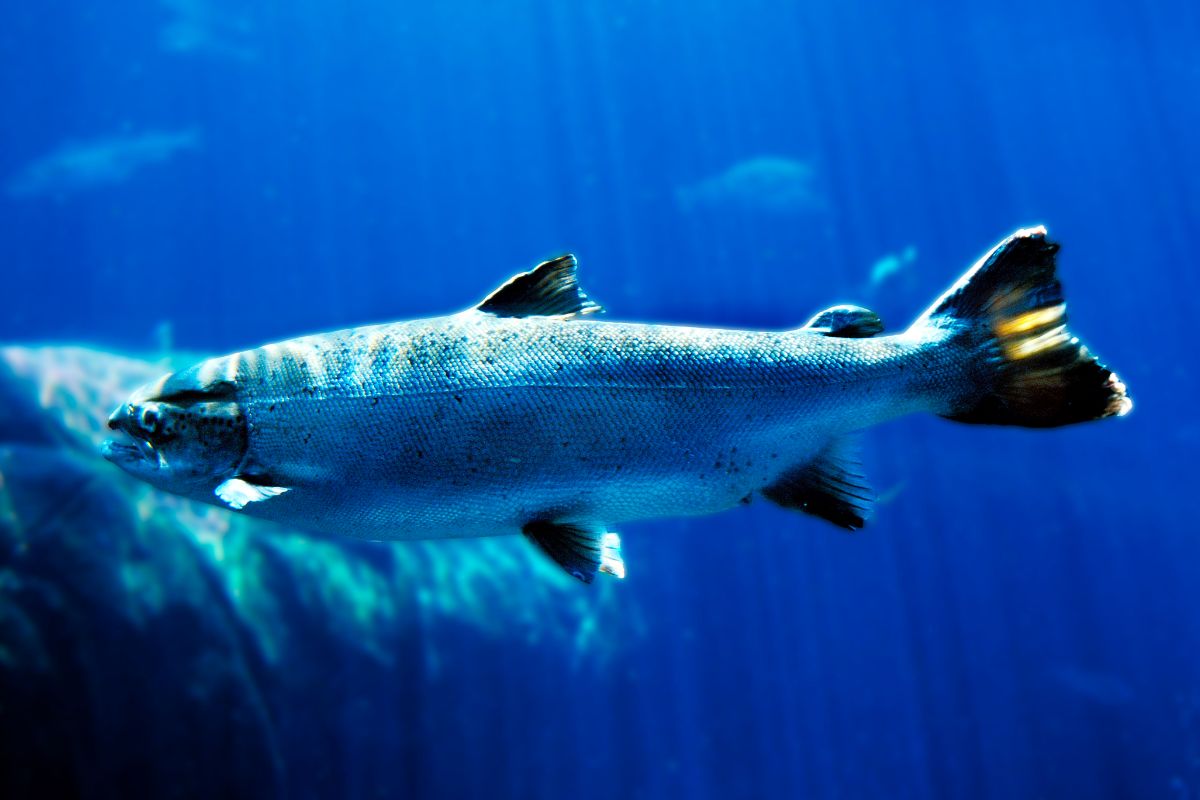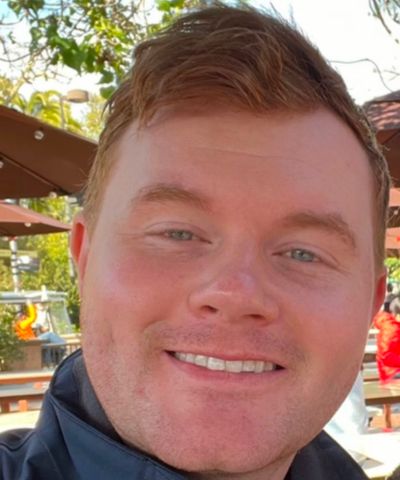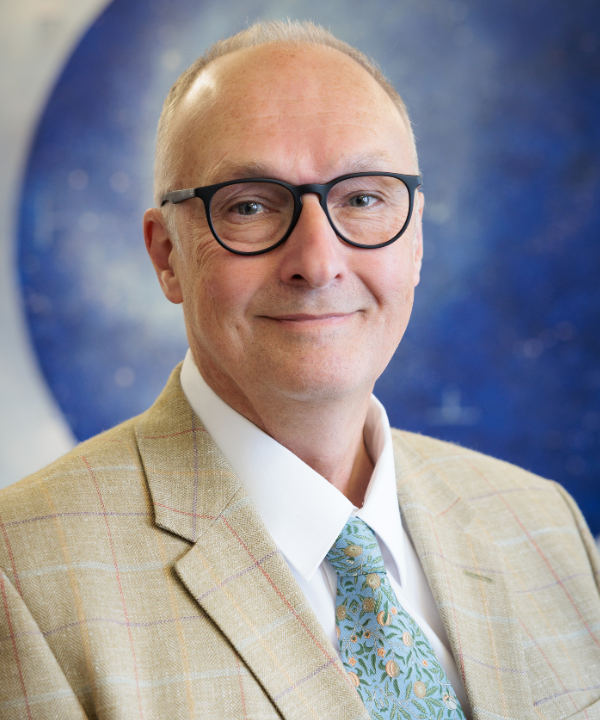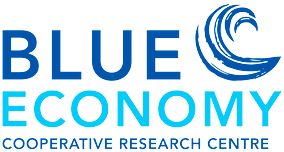
Webinar: Understanding and improving salmon performance
Wednesday 21st June, 2023
4pm – 5:30pm AEST
The webinar will focus on salmon aquaculture R&D programs that are using an array of advanced methods, particularly OMICS technologies, to understand fundamental aspects of production biology in the context of making commercially relevant contributions to improving on-farm salmon performance, including through selective breeding programs.
Presentation 1: Harnessing single cell transcriptomics to understand and improve salmon performance and health.
- Presented by: Professor Dan Macqueen, The Roslin Institute, University of Edinburgh.
Presentation 2: Multi-trait phenotyping of Chinook salmon to inform selective breeding.
- Presented by: Dr Jane Symonds, Aquaculture Group, Cawthron Institute.
Presentation 3: Tasmanian Atlantic Salmon selective breeding program: origin, developments, and innovation.
- Presented by: Lewis Rands, Salmon Enterprises of Tasmania (SALTAS).
Presentation 4: Experimental platform for aquaculture production project: what are we doing and how does it assist industry?
- Presented by: Prof Chris Carter, Institute for Marine and Antarctic Studies (IMAS), University of Tasmania and Blue Economy CRC
Dr Gianluca Amoroso, Research Fellow (Aquaculture) / Salmon Aquaculture – Team Leader, Institute for Marine and Antarctic Studies (IMAS), University of Tasmania.
Followed by Q&A facilitated by Prof Chris Carter.
PRESENTERS

Name: Prof Dan Macqueen
Affiliation: Personal Chair of Integrative Fish Genomics, Head of Division of Genome Biology, The Roslin Institute, University of Edinburgh
Professor Dan Macqueen holds a BSc from University of Plymouth and PhD from University of St Andrews and has held academic positions at University of Aberdeen (2013-2018), before moving to Roslin Institute. He currently leads Division of Genome Biology and acts as Theme Lead for BBSRC Institute Strategic Funding Programme ‘Prevention & Control of Infectious Diseases’. Academic Lead of Roslin Institute Genomics Facility. Research group studies fish, shellfish and their pathogens with interests cross-cutting genome biology and animal health – applied towards sustainable aquaculture. Co-coordinating the European Commission H2020 project ‘AQUA-FAANG’ and holds PI funding of ~£2 million GBP. Sits on the BBSRC Pool of Experts.

Name: Dr Jane Symonds
Affiliation: Senior Aquaculture Scientist – Applied aquaculture R&D, genetics and biotechnology, Aquaculture Group, Cawthron Institute
Dr Jane Symonds graduated with a first-class BSc (Hons) in genetics from the University of Newcastle Upon Tyne (UK), then completed a PhD in molecular genetics at the Australian National University. She was a manager in the NZ king (Chinook) salmon industry from 1993 to 2000 and established NZ’s first aquaculture selective breeding programme. Jane has since helped develop breeding programmes for multiple species (e.g., paua, kingfish, Atlantic cod, rainbow trout) and is a member of the FAO’s Advisory Working Group on Aquatic Genetic Resources and Technologies. Jane is currently a Senior Aquaculture Scientist at the Cawthron Institute, Nelson, NZ, and an Adjunct Senior Researcher at the University of Tasmania. She works mainly on farmed king salmon in close collaboration with the NZ industry. Research includes feed efficiency in king salmon, family selection, genomics, behaviour, composition, physiology, climate change resilience and health. Recent temperature challenge trials using king salmon families yielded very promising results and demonstrated the potential to select for improved thermotolerance.

Name: Lewis Rands
Affiliation: Selective Breeding Program Manager, Salmon Enterprises of Tasmania (SALTAS)
Lewis graduated with a first class Honours Bachelor of Biotechnology in Genetics and Biochemistry from the University of Tasmania in 2019. Soon after he joined Salmon Enterprises of Tasmania (SALTAS) as Selective Breeding Program Coordinator in 2020, which supplies the Tasmanian salmon industry with genetically improved salmon. Lewis was then promoted to Program manager of the SALTAS selective breeding program in 2021. In this role he is responsible for performing genetic analysis, the selection of broodstock to optimise genetic gains across different commercial environments, the collection of phenotypic and genotypic data, and coordination with key industry and scientific stakeholders.

Name: Prof Chris Carter
Affiliation: Deputy Executive Director; Professor of Aquaculture Nutrition, IMAS, University of Tasmania/Blue Economy CRC
Professor Carter joined IMAS as Professor of Aquaculture Nutrition in 2009 where he has been Head of Fisheries and Aquaculture (2013-18) and Interim Executive Director (2018-2019). He was previously Professor of Aquaculture at the University after arriving in 1994 as a Lecturer in Fish Nutrition. Chris has had various positions in Australian aquaculture education and research including Aquaculture Program Leader for the Tasmanian Aquaculture and Fisheries Institute for 10 years, Head of the School of Aquaculture, and Education Program leader for the Aquafin Cooperative Research Centre and Australian Seafood CRC. He is currently a member of the team leading the Commercial Development of Rock Lobster Culture Systems and Program Leader in the Blue Economy Cooperative Research Centre.

Name: Dr Gianluca Amoroso
Affiliation: Research Fellow (Aquaculture).Salmon Aquaculture – Team Leader, Institute for Marine and Antarctic Studies (IMAS), University of Tasmania.
Dr Gianluca Amoroso holds a BSc in Natural Sciences and a MSc in Evolutionary Biology and Ecology with focus on Aquaculture both completed in Italy. In 2012, he undertook a PhD in Aquaculture at UTAS focusing on skeletal deformities in triploid Atlantic salmon. After completing my PhD, from 2016 to 2021 Gianluca worked as Aquaculture Scientist at Petuna, where he runs a $0.5m FRDC project on pigmentation variation in Atlantic salmon at summer temperatures. The project led to the establishment of the Petuna Breeding Program which he coordinated for 3 years. In August 2021, Gianluca joined UTAS as Research Fellow in Aquaculture.






